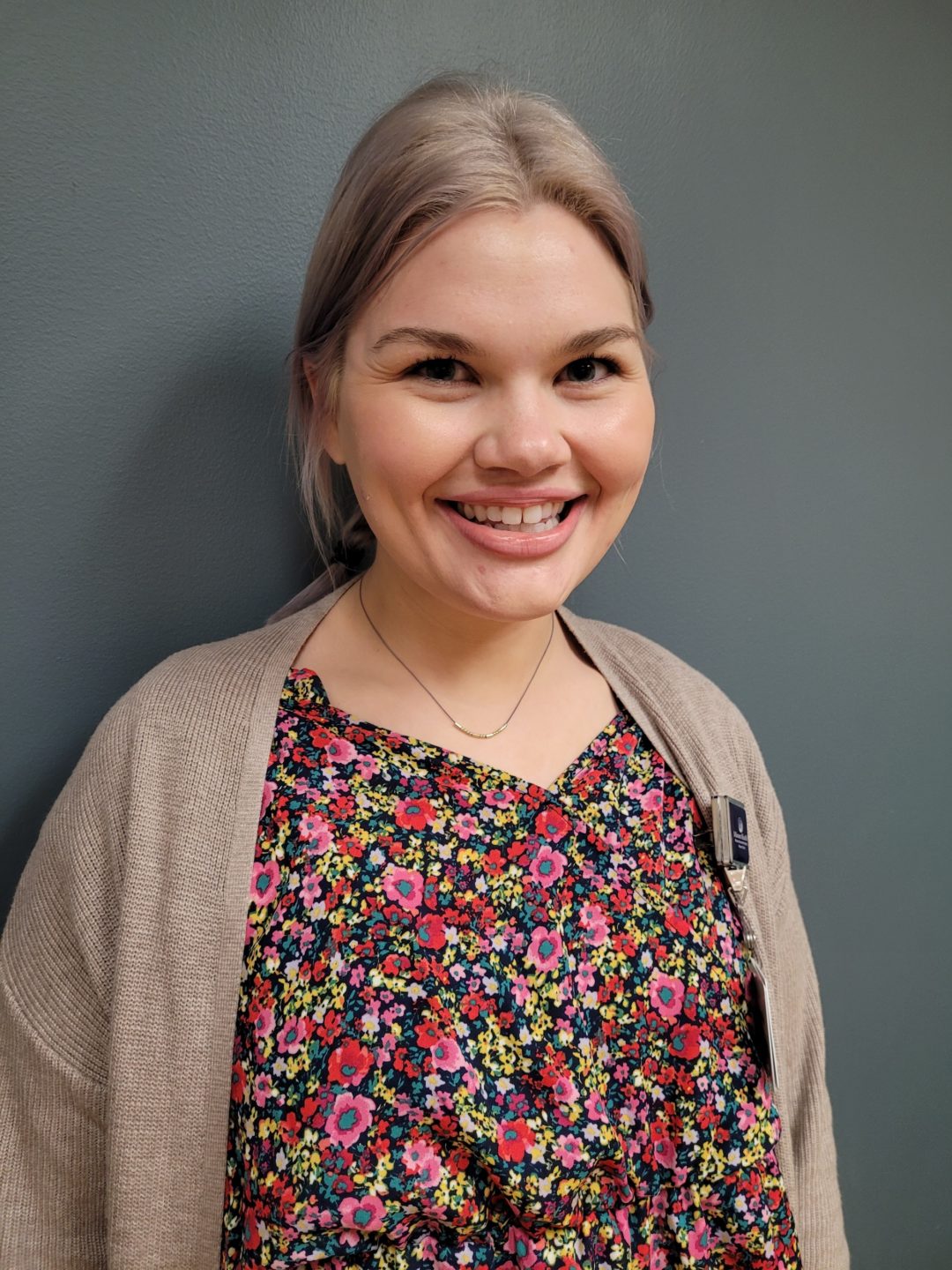MASON HEALTH SPEECH LANGUAGE PATHOLOGIST MONICA VINSON PUBLISHES PAPER ON THE IMPACT OF COVID-19 ON SPEECH THERAPY PATIENTS
Release Date: Jun 08, 2022
SHELTON, WA – COVID-19 can greatly impact the respiratory system, with symptoms such as shortness of breath and loss of taste and smell plaguing many since the virus’ onset in 2020. Medical speech language pathologists (SLPs) have played a unique and vital role in assessing and treating individuals diagnosed with the virus. Mason Health’s Monica Vinson, MS, CCC-SLP, recently co-authored the study paper, “The Impact of COVID-19 on Clinical Practice in Medically Based Settings: Speech-Language Pathologists’ Perspectives,” which details how the virus has changed who is being seen by speech-language pathologists and how their mental health impacts their medical care and treatment.
Vinson joined Mason Health in August 2021. Prior to completing her certification as a speech-language pathologist, she gained clinical experience in long-term care and skilled nursing facilities, with an emphasis on memory care. Vinson entered the field in May 2020, just as the COVID-19 pandemic took hold in the United States.
“What a time to enter the profession,” she said. “What I love about the work we get to do as speech therapists is that it is really meaningful and valuable — eating/swallowing and being able to communicate are two of life’s most precious gifts. Our patients are coming to us from a really hard time, and I want to be that support person to give them resources and be that hope.”
While in graduate school, Vinson worked as an assistant to Dr. Amanda Stead, PhD, CCC-SLP, the lead author of the COVID study. The two remained in touch, and in September 2020, along with co-authors Paul Michael and Dane Frank, began to study speech-language pathologists and their patients to see what impact the pandemic was having on them.
The paper included data and insights from 208 participants and focused on a wide range of issues impacting both patients and speech-language pathologists — it asked questions such as what changes have speech-language pathologists seen in their caseloads, what are practitioners’ experiences with COVID precautions, what has been the impact on caregivers, and so much more.
One finding showed that pathologists were seeing more patients coming in with dysphagia, or difficulty swallowing, and more patients were experiencing cognitive complications. Impacts to cognition (brain fog, fatigue, etc.) were compounded by mental health concerns. Patients, especially those in skilled nursing or long-term care facilities, did not have as much access to social activities, which impacted their mental health and exacerbated their cognitive complications.
“We’re seeing many COVID survivors experiencing cognitive complications,” Vinson said. “That’s 50 percent if not more of my caseload. That was a big shift. Mental health impacts a variety of things. Socialization and being around people, that brings us joy and makes us feel good. When people feel anxious and feel that things are dark and scary, that presents a big barrier to their desire to participate in therapy. Their compliance to a treatment plan and their motivation to change is impacted.”
The study also looked at the impact of COVID-19 precautions, such as masking, distancing and telehealth, on patients. Practitioners reported that mask usage resulted in disengagement, particularly among hard-of-hearing and frail patients. Mask usage also was correlated to communication stress, fatigue and anxiety in older adults. COVID-19 precautions also resulted in reduced capacity at many long-term care and rehabilitation facilities and increased isolation among many patients.
“One big thing that COVID has shown us is that we really need to value our mental health, for our health care providers and our patients,” Vinson said. “COVID has pinpointed little cracks in the system and one of our follow-up questions is what can we do to address these issues and make systemic changes. It’s worth further study. These past two years have been so hard in so many ways. We need to be very mindful that our patients are coming in maybe sicker and maybe not in the best spirits. We need to be mindful of not just their physical care, but their spiritual and emotional health too. Taking that holistic perspective is important for providing the best patient-centered care.”
The full study can be viewed at https://pubs.asha.org/doi/10.1044/2021_PERSP-21-00166# and on https://www.masongeneral.com/services/rehabilitation-and-physical-therapy.

Monica Vinson, MS, CCC-SLP



